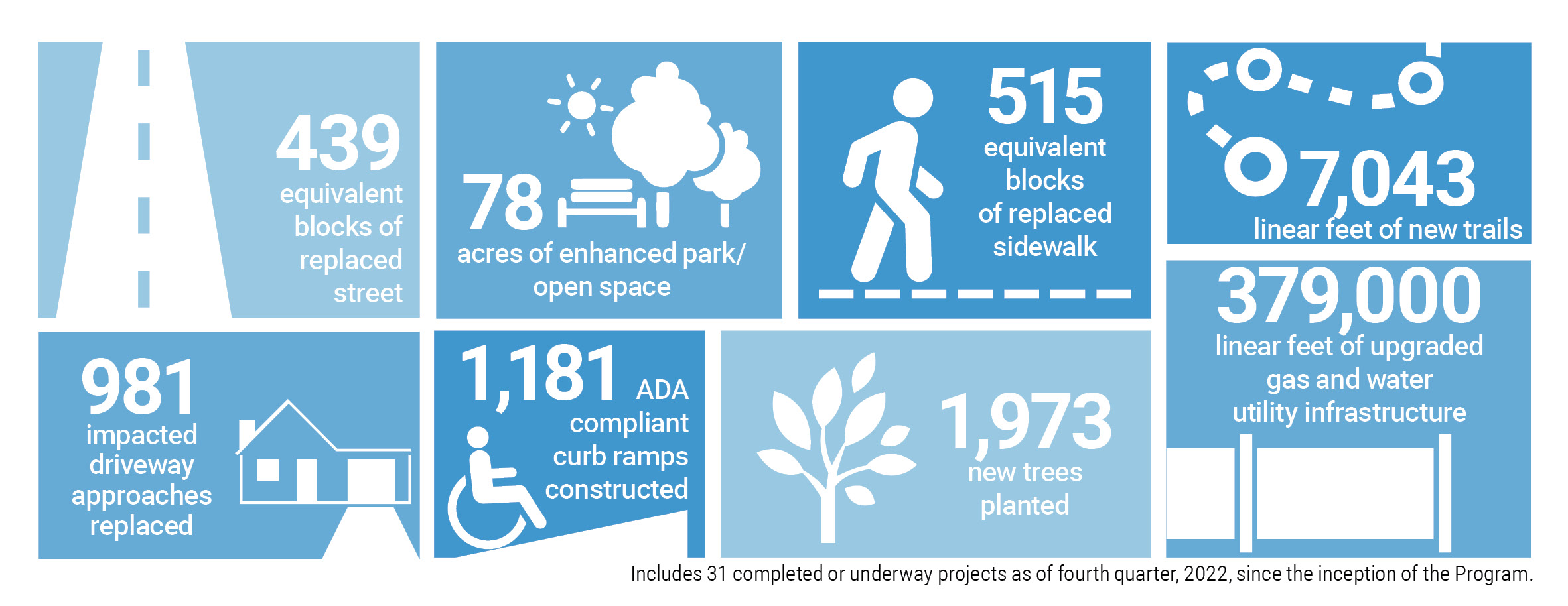Omaha CSO
Skip to contentAbout the Program
Before the CSO Program, about 3.7 billion gallons of raw sewage mixed with stormwater overflowed into the Missouri River and the Papillion Creek in an average year. Through the CSO Program, the City is dramatically reducing the volume of overflows to meet regulatory requirements. It is funded by all ratepayers who use the City's regional wastewater collection and treatment system.
![]() Program Highlights & Video Gallery
Program Highlights & Video Gallery
Mission, Vision & Goals
The Program Management Team's job is to save money for City ratepayers, make decisions in the vest interest of the community, and meet the objectives and requirements of the Clean Water Act.
Specific CSO Program goals include Regulatory Compliance, Economic Affordability and Community Acceptance.
Funding
The CSO Program is funded by sewer use fees paid by ratepayers the City of Omaha Public Works Department serve. Additionally, other funding resources have included several grants from the Nebraska Environmental Trust (NET) and the Nebraska Department of Natural Resources (NDNR).
Financing for the Program has included low interest loans issued through the State Revolving Fund (SRF) Loan program from the Nebraska Department of Environment and Energy (NDEE). Additional, project-specific financing has been made available from the Water Infrastructure Finance and Innovation Act (WIFIA) low-interest loan program.
RATEPAYER ASSISTANCE
Ratepayer assistance is provided to low-income households who qualify for Nebraska's Low-Income Energy Assistance Program (LIHEAP) and through a 2020 federal Coronavirus Aid, Relief, and Economic Security (CARES) Act contribution. More than $21.1 million in ratepayer assistance has been provided to low-income households.
For information about the sewer use fee assistance program call (402) 444-3908.
Schedule
The Long Term Control Plan (LTCP) sets the overall schedule for the CSO Program, which began in 2009. It includes a variety of CSO control projects, ranging from sewer separation to high-rate treatment facilities, all implemented under the oversight of the City and Program Management Team.

Design and construction of the CSO solutions will take place in phases between now and October 2037.
Community Benefits
Each project includes the opportunity to improve and enhance neighborhoods. Where streets and curbs are removed for construction, new streets, curbs, ADA accessible ramps and driveway approaches will be built. Where trees are removed, new trees or other plants will replace them. Other enhancements have included public art, decorative seating, rain gardens and park improvements.

Contact Us
To reach Omaha Public Works Department, call 402-444-5220 or email pwreception@cityofomaha.org.
Locations, timing and other details stated on this website are for general information only and are subject to change. If more detailed information is required, please contact us directly.


